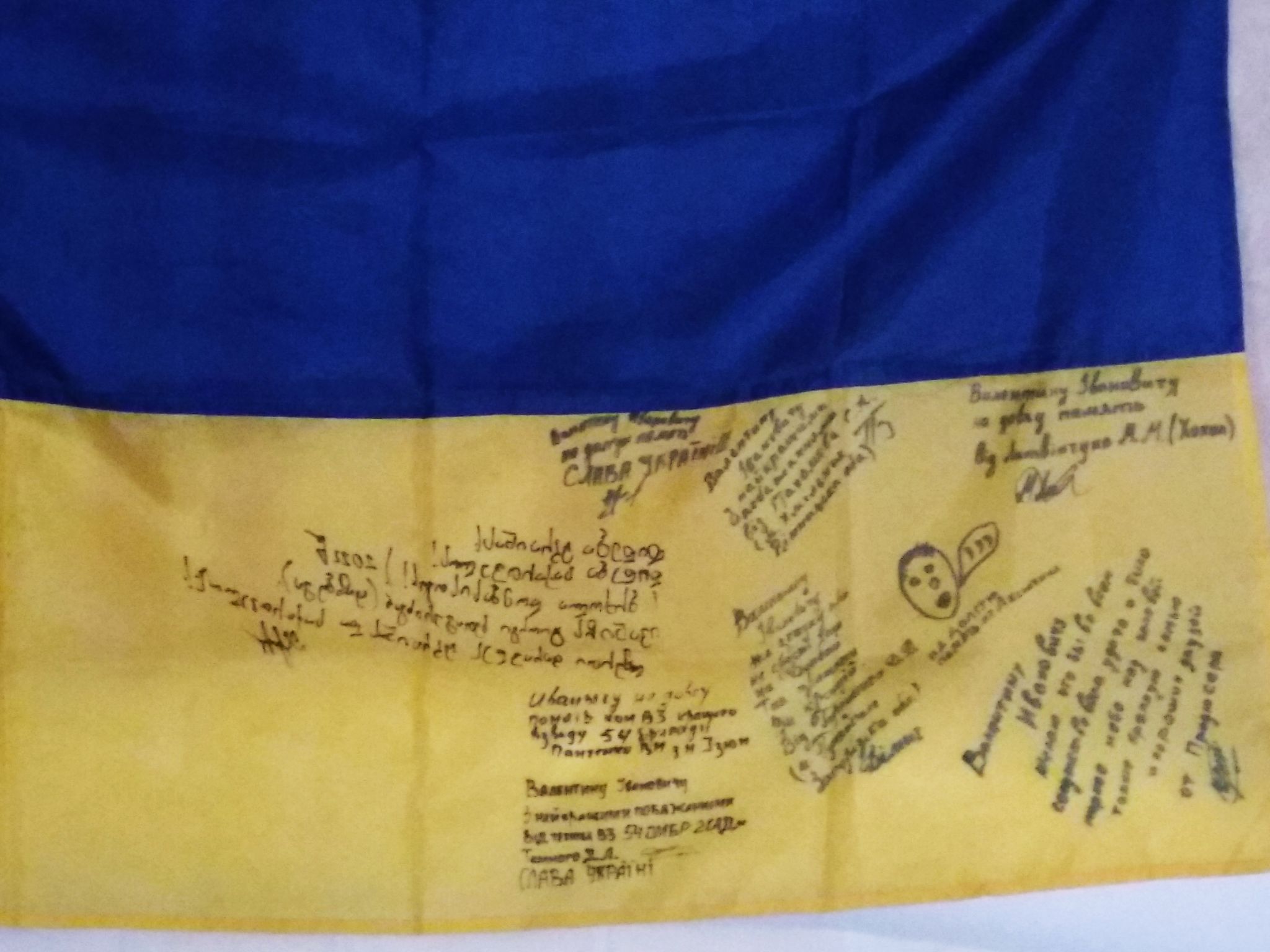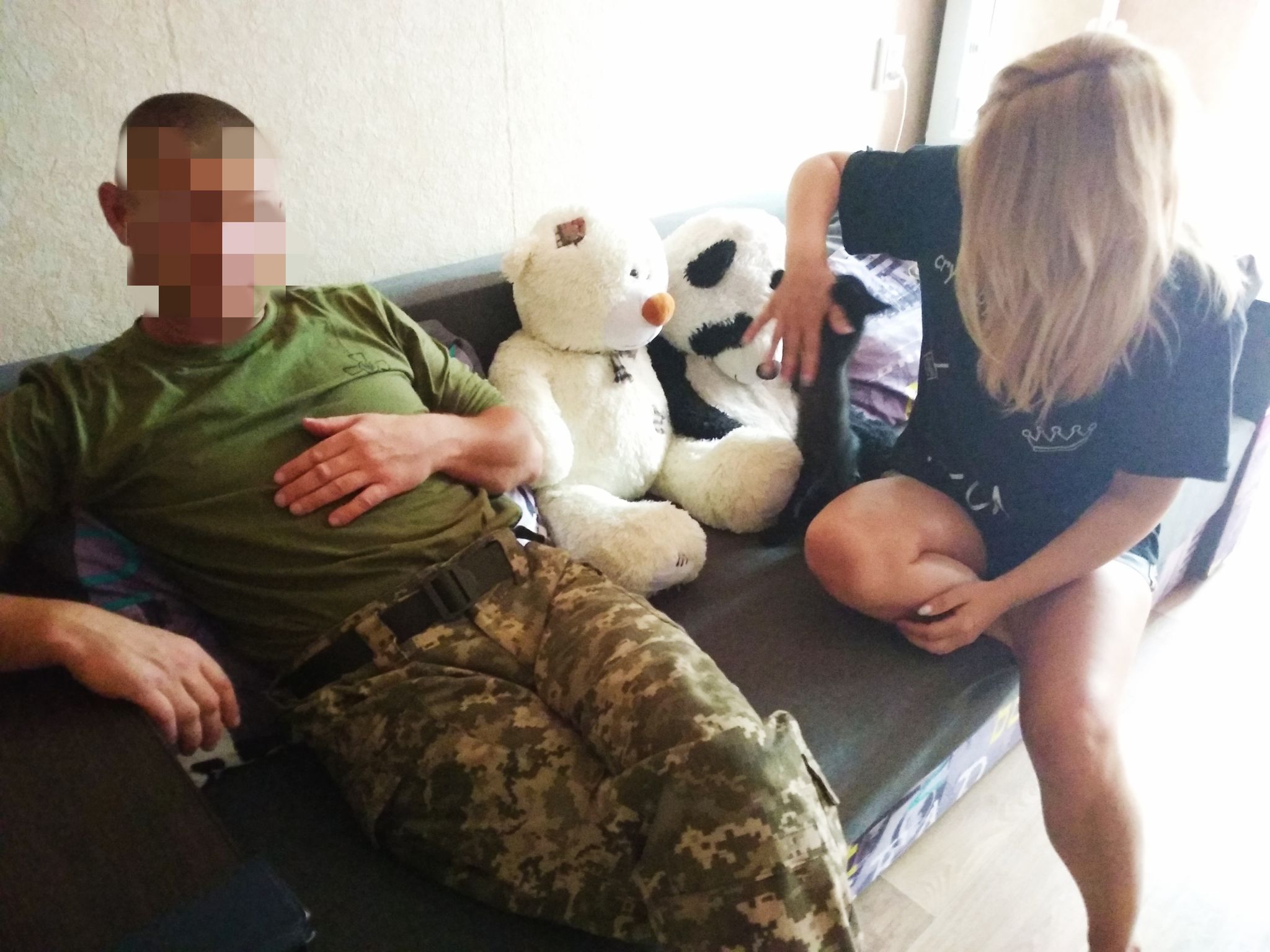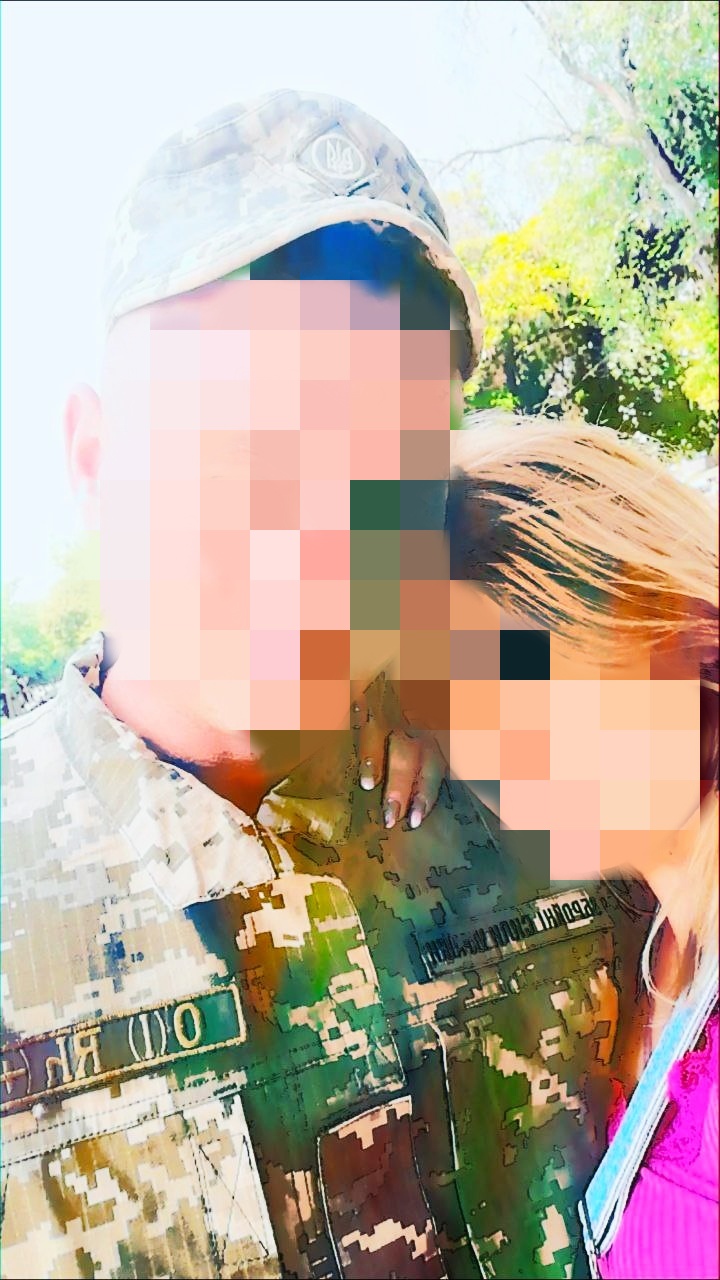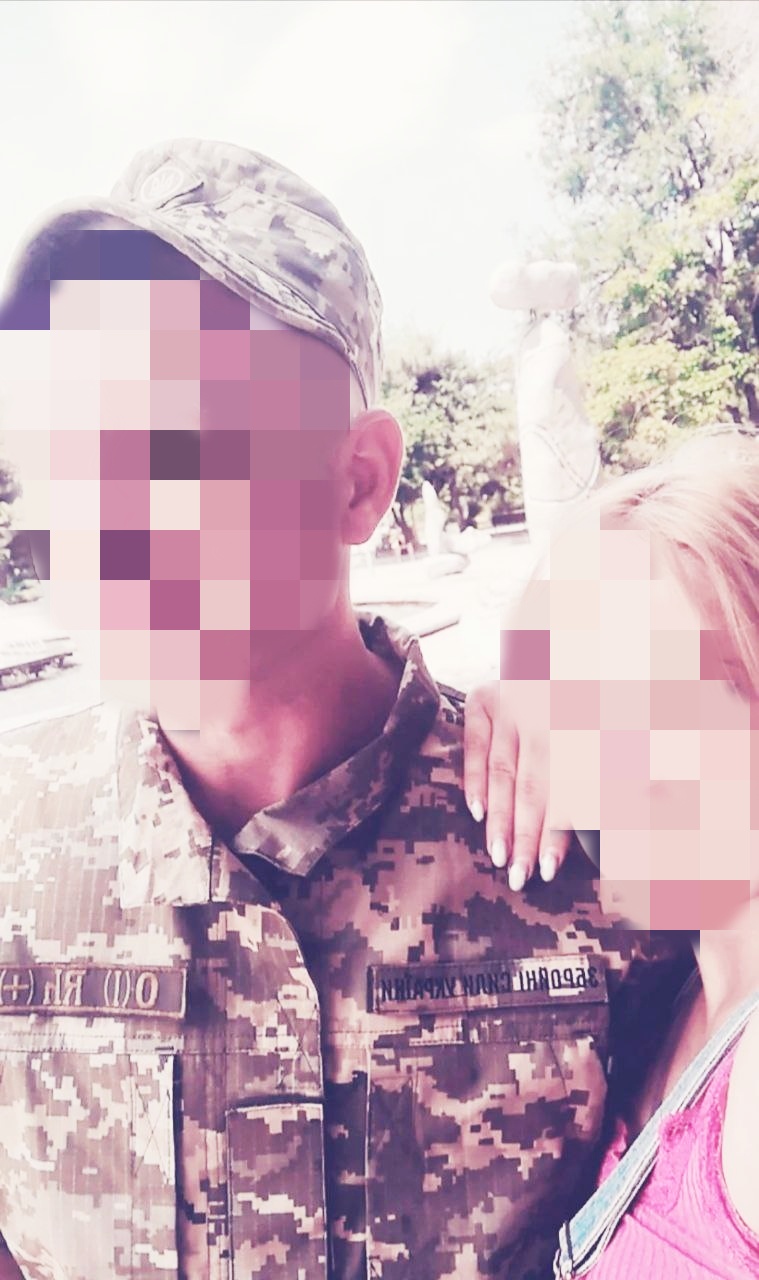We are waiting not only for the victory to come, but also for the return of the future winners – sons, fathers, husbands, and friends. And we must be aware that when we see them, they will be different. What should we know so that post-traumatic stress disorder could not occur in them?
Back in 2015, psychologists Anna Batsa and Olha Evert from the Scientific Research Center for Humanitarian Problems of the Armed Forces of Ukraine gave several tips that should be followed for the defender to get their lives back on track.
While he is at the front, do not tell him about your fears and anxieties; do not cry into the phone. A man who is in a war zone lives on the edge of his capabilities. If he is not sure that everything is fine at home, he will not be able to perform combat missions effectively.
Remember, this is a different person with a unique experience. He must be accepted along with new views, acquaintances, problems, fears and, possibly, manifestations of aggression.
A person who has gone through the war has become much stronger, wiser and more experienced. He is back. Alive. Came back to you. Everything else is a hardship that can be overcome if you aim to live a happy life with the person.
Our characters’ families are in the temporarily occupied territories; therefore, we decided to change their names so as to ensure their safety.
Serhiy was born in the family of a chief accountant and a driver in a small village of the Polohy district (formerly Tokmak). Since childhood, he adored sports: he went in for football and boxing. At school, he loved geography and physical education classes. When he grew older, he decided to maintain order on the streets of his native village or elsewhere in the Zaporizhzhia region and become a policeman.
For the last eight years of his life, 38-year-old Serhiy has been serving in the hottest spots of the Russian-Ukrainian war. During this time, he received two contusions, shrapnel wounds in his arm and sleep problems. However, he managed to remain as good-hearted and smiling, only sadness appeared in his eyes.
Serhiy recently received a 10-day leave for shooting down an enemy helicopter. The hero did not hesitate – at the first opportunity he rushed to Zaporizhzhia to meet his girlfriend for the first time. On learning that my compatriot was in town, I decided to take advantage of the situation and asked for a conversation.
“Something keeps pulling me to war”
– In 2015, I was mobilized to the village of Hranitne (Mariupol sector in the Donetsk region), located right along the demarcation line, – says Serhiy. – That same year, I was discharged to the reserve. I stayed at home for a while. Everything seemed to be okay. But… Something kept pulling me to war (laughs). So, in 2017, I volunteered for the 53rd separate mechanized brigade named after Prince Volodymyr Monomakh, and became a machine gunner. In 2020, I was discharged to the reserve again. I returned to my home village again. Little by little, I tried to adapt, took up farming, tried to settle down. I bought new equipment. Some of the villagers started telling me to my face that I was a moneymaker. They said, “You left, earned money, now you’re spending the money earned in the war.” Yes, I was paid. Should I have refused?
– You should have said: go there, try to earn money with such hard work. You are defending your country. Would it be easier for them if you lived from hand to mouth? The state pays and it’s good. If it didn’t pay, you’d still be fighting, – Serhiy’s girlfriend says.
– I only answered: “The time will come when you’ll understand.” And what? Now my home village is temporarily occupied territory. Those who laughed at me are afraid to even get out of the house. They cannot protect their home, family or even themselves. Oops, I got a little distracted. It’s just frustrating to have to listen to something like this.
On February 24, I received a phone call: reservists were called first. They said that we had to go. Around 3:30, my mother took me to the Tokmak United City Military Commissariat. I was very calm. After the 53rd brigade, not much can scare me. I had only a plate carrier and a small backpack with me. I didn’t want to scare my mother – I didn’t say until the last that I would probably not see her soon. The same day, I got to Zaporizhzhia, and from there I left for Donbas.
I hoped I would be assigned to the 53rd Brigade. I had all the necessary documents. I really wanted to see the guys. It so happened that I was sent to the 54th separate mechanized brigade named after Hetman Ivan Mazepa. A little later I found out that my dear 53rd brigade had suffered considerable losses. They were still holding Volnovakha then. The Russians surrounded. The guys fought back to the last. Almost the whole first battalion died in action. I’m sorry I wasn’t with them then. Most likely, I would not be sitting here on the couch now, but that’s not important. So many boys died…
In the 54th brigade, I do the same thing I did in the 53rd – fire a machine gun. By the way, I didn’t know until the end whether we would be paid or not. Wasn’t interested. This is the kind of moneymaker I am.
On March 27, I managed to shoot down an enemy helicopter – Alligator Ka-52. A good chopper – armored, equipped with the Arbalet radar system, and a lot of other cool things. Our team had never dreamed of it, until they brought some equipment. When I saw that whirlybird, I started firing it with a “pokemon”. Their Alligator didn’t hold out. 7.62 mm is a great machine gun. The helicopter spun beautifully and fell. The boys and I ran to get the half-dead orcs out. That’s how I managed to get a 10-day vacation.
At first wanted to go to Zaporizhzhia. But I feel I don’t belong here. I worry about the guys, how they are without me. I know that something can change any moment.
I remember how we entered a liberated village. In total, we managed to liberate 3-4 villages in the Donetsk region, I have no right to give you names now. Some settled in the private sector, others in a kindergarten. Something hit right away – probably some locals turned us in. We asked for help a lot of times. I called the leadership in the capital and asked: “Please help us.” They answered: “Hold on.” The help never arrived. We had to hold on by ourselves. 17 people died. That’s how it was… I’ll tell you: yes, there are traitors, but no matter what you hear many people of Donetsk and Luhansk regions are for us. When we entered villages, the locals shouted: “Oh, our soldiers.” They are tired of constant looting. Russian troops enter houses to take something while ours, on the contrary, are ready to give their last.
Anything can happen in war. There I always had four grenades with me, two in my body armor and two on my legs, so that if necessary I could pull out a check – and that’s it, I’m gone. Maybe I could take a few Russians with me. I will never be captured. NEVER! I have already warned my girlfriend. I’d rather suffer for 7-10 seconds than be taken by Russians.
There are taboo topics. It’s hard to hear anything about children. Once we entered a liberated village – the school was destroyed by an enemy shell. My comrades and I went in to check the area and saw the bodies of two teenagers, around 12-15 years old, under the desks in one of the classrooms. I saw what Russians did to young women.
After the victory, I will go to the hospital, get some treatment and visit a psychologist. I can’t sleep at night. As soon as I close my eyes, I get the feeling that there are explosions somewhere. My girlfriend asks me: “Why don’t you sleep at all?” I can’t. Sometimes I stick to my phone or go to the kitchen to cook something.

Psychologist Victoria Petrova’s commentary:
– It is not necessarily true that every soldier who returns from the war will have psychological traumas. Statistics say otherwise. It is important to show a balance: some people will need specialist help, while others will not. For example, PTSD (post-traumatic stress disorder) manifests itself at least 6 months after exposure to a traumatic event. This is one of the key criteria for diagnosing PTSD. And often it manifests itself only after years. In figures, 12-20% of those who experience trauma may develop PTSD.
When we say that there may be problems with mental health, we do not necessarily mean disorders. This is rather a normal shock reaction to a change in environment. At first, it will be difficult for a person to adapt to security. For a certain time, the body and psyche will be mobilized as much as possible. In most cases, everything will pass, time will pass, and the psyche will return to normal on its own.
If a person has faced a very traumatic event, the first medical intervention may be required. But not everyone can immediately seek help. Therefore, you should give yourself a month to adapt at home. Don’t forget to take care of yourself: normal sleep, breathing practices, returning to “here and now.” You should understand that it is normal to overreact to some traumatic events. If after a month you fail to return to your usual life, you can already pay attention to this and do minimal interventions. Professional help consists primarily in psychoeducation: explaining what is happening to your psyche, what the consequences may be, and what preventive measures are required.
You should understand that we live under wartime conditions. This is basically an abnormal situation. It’s scary. Now the limits of the norm have shifted. We cannot clearly say what the norm is. You should allow yourself to show emotions, and should understand how to do this. You can find adaptive ways: sports, hobbies, breathing techniques, sleep hygiene, non-judgmental attitude towards yourself, kindness towards yourself, distancing yourself from negative thoughts. These things can help both military and civilians reduce their stress levels.
You should not stigmatize the military – everyone can have a traumatic experience during the war. We should be more considerate, softer and kinder to each other, more supportive. It is important to understand that when a person returns from the war, from abroad, leaves the temporarily occupied territories for the government-controlled ones, he should create his environment anew, because he has faced big challenges in his life.
Adventures of Serhiy and Zheka
– War is not only explosions and deaths. We are trying to be positive there. I believe that I have a guardian angel. On my mother’s birthday, March 1, we brought “cucumbers” (shells) from Izyum. We were almost reaching Bohoyavlenka, when one boy felt the urge to buy cigarettes. He was looking for them for a long time, so we started calling him. While we were waiting for him, orcs opened fire towards that direction. We would be dead, if it weren’t for that half-hour. We escaped orcs’ fire. It was not the first time such things had happened. Someone saves us.
Volunteers help us a lot. Every two weeks, they bring us clothes, food, personal hygiene products, medical bandages, hydrogen peroxide, etc. in boxes labeled K2 (the name of Serhiy’s brigade). They also brought us Easter baskets, Easter eggs painted blue and yellow, drawings from Canadians children. I even took a picture.
The 54th brigade is very good. Our commander is cool. He treats us as equals and eats at the same table with us. Sometimes he shouts at us, mostly when we have done something wrong that threatens our safety.
I remember two guys got drunk and decided to organize a race. They did. The chief-of-staff arrived on the second day. He summoned Kiryukha and his friend, shouted at them, beat them up a bit, and then sent them to dig a hole. The boys left without objection, they understood that they had screwed things up. We brought them food and water from the field-kitchen. They were so happy then, champing and constantly thanking us: “Oh, boys, thank you.”
I’m no saint. Sometimes I drank with my brother-in-arms Zheka. Before the vacation, we went to our brother-in-arms in a neighboring village; just then three villages were liberated. We drank there. An acquaintance calls me and says: “You’d better stay there now, don’t go back.” Well, but we’re cool boys, we just went back. We entered the house where we settled then. I immediately went into the room, climbed into bed, pulled the blanket over my head – as if hiding. The commander first caught Zheka. Then he says: “Does the other guy think I won’t find him on the second floor? Hiding?” He comes in, says to me: “Come on, both of you, go outside.” He scolded us for having a lot of weapons in the car. He didn’t touch us. He just demanded: “No more trips. Get some sleep. Only not in the house, but outside.” After some time, Zheka pushes me, laughs: “Listen, there is a store not far from here.” Well, sometimes we enjoy troublemaking, like kids do.
Inna, Serhiy and cat Patron
– April 13 was a fateful day. We rested, were stuck to our phones. Then Zheka said: “Listen, let’s download Badoo for you, you’ll find a girl.” I didn’t really like the idea, because I already had some experience of online dating. And then I decided to do this. I had nothing else to do anyway, because I was not supposed to perform the task. I registered on Badoo. And then almost immediately I came across the most beautiful girl. I decided to write her a message – that’s how it started.
– I am from a temporarily occupied village of the Melitopol district, – Serhiy’s girlfriend explains. – I saw with my own eyes how it all began. How the Russians brought in equipment. They settled wherever they wanted. They stole things. They abducted people. One day they stopped a teacher on a bicycle. They accused him of some kind of treason, put a bag on his head and took him to an unknown destination. No one knows what has happened to him. And he is an ordinary teacher.
It was too risky hanging out in the neighborhood any longer. I never took my phone with me, I was afraid that they would find our correspondence with Serhiy, because he is a military man. You had to carefully choose words when communicating with people, because you don’t know who is who. They could easily squeal on me.
Before going to the store, I called Serhiy: “I’m going to the store.” I left my phone at home, ran to the nearest store and back. After ten minutes I had to call him back to report that I was home. He was afraid for me. He won my heart with his care.
After learning about his vacation time, I realized that I had to leave the temporarily occupied territory. To meet there was not an option. We decided to go to Zaporizhzhia. The road was difficult. I immediately felt freedom there: Ukrainian songs are playing, banners are in my native language, you can say what you want without fear. Serhiy helped me with money so that I could rent an apartment.
Our first real meeting took place when Serhiy came on vacation. Before the meeting, he bought me a gorgeous bouquet of my favorite flowers – Eustoma. He approached my porch, called: “Come to the window.” I started running around the apartment, looking out the windows. And he told me: “I’m here. Why aren’t you waving at me?” I thought he was joking. Because of emotions, I did not immediately understand that the windows faced the other side, so I could not see him.
It was very exciting. I was afraid of character incompatibility, because we had never seen each other before. Now I understand that we’re really serious. We are making plans for the future. He is sensitive and caring. Recently he has bought me Eustomas again.
Serhiy and Inna have a new family member – cat Patron. Serhiy gave a cat that name. The girl took a kitten before Serhiy’s arrival and shared a video. The man decided that the little brawler should be called Patron. During the interview, their little fuzzy managed to bite his owners and the journalist, knock over the voice recorder and play a little with his toy.

Inna’s dream is to live in the city. Serhiy is ready to stay in Zaporizhzhia after the victory, especially since he has long been offered a job in law enforcement agencies. The girl is also actively looking for a job – she is not used to being lazy, she wants to work.
Oksana Shcherbyna, Zaporizhzhia
7.07.2022
Article is prepared within the project “Countering Disinformation in Southern and Eastern Ukraine” funded by the European Union.





